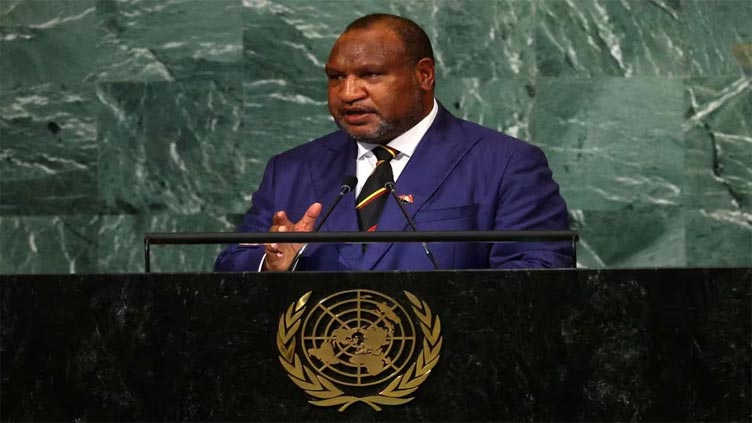Papua New Guinea PM Marape says no talks with China on security

World
Papua New Guinea signed a defence agreement with the United States in May
SYDNEY (Reuters) - Papua New Guinea Prime Minister James Marape said on Monday the Pacific Islands nation, which he sees as a buffer between Asia and the Pacific, had not held talks with China on security after signing a security agreement with neighbour Australia last week.
Marape said that Papua New Guinea had been transparent, and that when he visited Beijing this year with his ministers and met China's leaders "there was no conversation on security".
"We keep them in the space of the economy, we went with traditional security partners for security," he told a resources investment conference in Sydney.
Papua New Guinea signed a defence agreement with the United States in May, and struck a security deal with Australia last week that Marape said was focused on internal security, including boosting police numbers and the judiciary.
"These two are complementary. External security with the USA, and internal security with Australia," he said.
The resource-rich but largely undeveloped nation north of Australia is seeking to woo foreign investment and trade to boost its economy, amid an increasing jostle for influence in the region between the United States and China, which signed a security pact with neighbouring Solomon Islands last year.
PNG is discussing a free trade agreement with China, which already buys half of PNG's produce.
Marape said improving security was important for foreign investors.
Papua New Guinea's exports are dominated by resources and energy, including liquefied natural gas.
Marape said that he did not want to be lectured on climate change, and that nations with the biggest carbon footprints and affluent lifestyles needed to take the lead in curbing emissions.
"My country is in the oil and gas business. Lucky for me we have the big forest and ocean to offset," he said.
With 70% of Papua New Guinea forested, Marape said it was a "carbon negative" country and offered a green label to energy investors.
In a separate speech to the Lowy Institute think tank on Monday, Marape said the greatest challenge facing humanity other than climate change is poverty, and economic investment was "more powerful than just security".
"The gap in poverty must be filled - the West cannot be ignorant to this," he said, adding that he believed the next 100 years would be the Asian century.
He said PNG's security interests were different from those of smaller Pacific Island nations because of its geographic position, and PNG wanted to "share responsibility with Australia, to assist in keeping our Pacific safe".
"PNG stands as a buffer to greater Asia and linking to the Pacific," he said.
Marape also said PNG was seeking to forge trade ties with India to ensure it had supplementary markets that would step up, in case "we get problems elsewhere".


